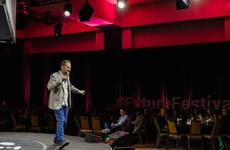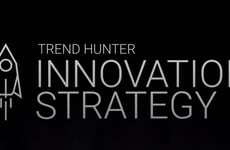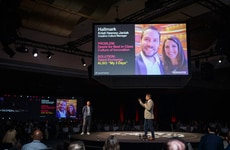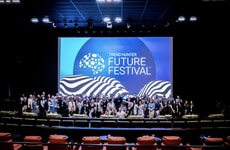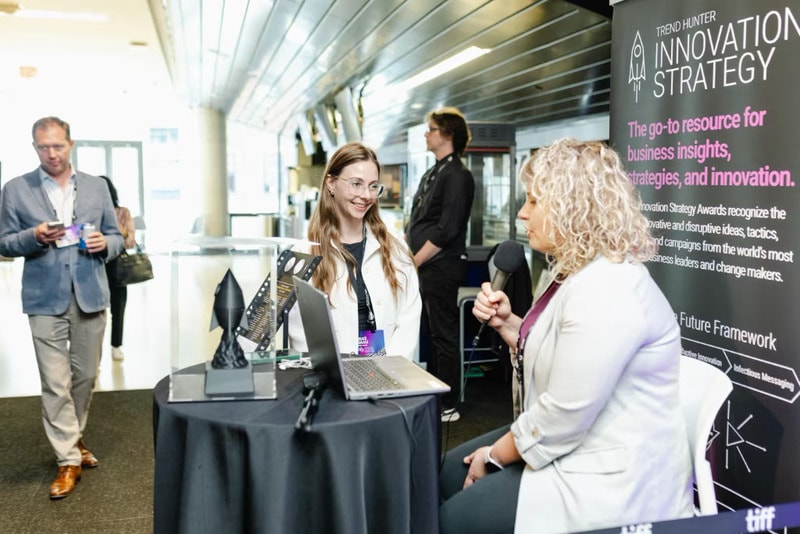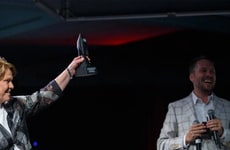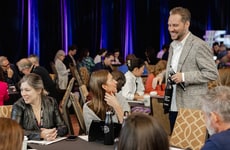Armida Ascano Spoke with Leading Innovators at Future Festival NYC
Grace Mahas — June 17, 2025 — About
At Future Festival New York, Chief Content Officer and futurist Armida Ascano sat down with three industry leaders for in-depth interviews. While each conversation offered distinct perspectives, a common thread emerged: breakthrough innovation is rooted not in technology or process -- but in human connection.
Culture Isn’t a Commodity
Nicole Wyche of Notorious 111, a culture-forward agency, issued a frank reminder to brands eager to align themselves with cultural trends: legitimacy can’t be bought or imposed. “We see a lot of brands thinking they can dominate or rule a culture—that's not how it works,” she said. “There are no kings that just jump in; they're made and bred from the inside.”
Her team-building strategy reflects this ethos. By intentionally mixing individuals with different comfort levels -- creative, analytical, risk-averse, bold -- she creates space for mutual growth. Innovation, in her view, starts with the friction and fusion of diverse lived experiences.
Innovation That You Can’t See
Karen Stanton, CMO at IFF, operates in a realm where success is largely intangible: crafting scents and flavors that elicit deep emotional responses. Her observation on AI was telling: “When you smell something, your memory receptors are located right next to your smell receptors in the brain. AI can't do that yet.”
For Stanton, real creativity doesn’t come from automation or structured ideation sessions. It comes from what she calls the “Three Bs” -- Bus, Bath, or Bed -- the quiet moments where the brain is relaxed enough to wander, connect, and create.
The Human Problem Behind Every Breakthrough
Miguel Olarte of Diageo takes a deliberately disruptive approach to innovation. Calling himself a “trouble seeker,” he avoids solution-first thinking. “We fall in love with the problem and not with the solution,” he explained. His process is refreshingly analog: talk to people, ask questions, and listen closely. The biggest opportunities, he argues, are buried in everyday frustrations.
A Preview of What’s Next
These interviews are part of a growing body of insight emerging from Innovation Strategy’s event coverage. That same approach—grounded, human-centered, and reflective—will inform our presence at Future Festival World Summit in Toronto this September, where a dedicated Innovation Strategy interview hub will spotlight leaders across industries. Participants will also be considered for the Innovation Strategy Awards, which recognize standout contributions to forward-thinking business.
The Real Takeaway
Across these three voices, the message is clear: the future of innovation isn’t about novelty for its own sake. It’s about understanding people -- what moves them, frustrates them, delights them -- and using that understanding as the foundation for meaningful change.
Culture Isn’t a Commodity
Nicole Wyche of Notorious 111, a culture-forward agency, issued a frank reminder to brands eager to align themselves with cultural trends: legitimacy can’t be bought or imposed. “We see a lot of brands thinking they can dominate or rule a culture—that's not how it works,” she said. “There are no kings that just jump in; they're made and bred from the inside.”
Her team-building strategy reflects this ethos. By intentionally mixing individuals with different comfort levels -- creative, analytical, risk-averse, bold -- she creates space for mutual growth. Innovation, in her view, starts with the friction and fusion of diverse lived experiences.
Innovation That You Can’t See
Karen Stanton, CMO at IFF, operates in a realm where success is largely intangible: crafting scents and flavors that elicit deep emotional responses. Her observation on AI was telling: “When you smell something, your memory receptors are located right next to your smell receptors in the brain. AI can't do that yet.”
For Stanton, real creativity doesn’t come from automation or structured ideation sessions. It comes from what she calls the “Three Bs” -- Bus, Bath, or Bed -- the quiet moments where the brain is relaxed enough to wander, connect, and create.
The Human Problem Behind Every Breakthrough
Miguel Olarte of Diageo takes a deliberately disruptive approach to innovation. Calling himself a “trouble seeker,” he avoids solution-first thinking. “We fall in love with the problem and not with the solution,” he explained. His process is refreshingly analog: talk to people, ask questions, and listen closely. The biggest opportunities, he argues, are buried in everyday frustrations.
A Preview of What’s Next
These interviews are part of a growing body of insight emerging from Innovation Strategy’s event coverage. That same approach—grounded, human-centered, and reflective—will inform our presence at Future Festival World Summit in Toronto this September, where a dedicated Innovation Strategy interview hub will spotlight leaders across industries. Participants will also be considered for the Innovation Strategy Awards, which recognize standout contributions to forward-thinking business.
The Real Takeaway
Across these three voices, the message is clear: the future of innovation isn’t about novelty for its own sake. It’s about understanding people -- what moves them, frustrates them, delights them -- and using that understanding as the foundation for meaningful change.
4.3
Score
Popularity
Activity
Freshness
